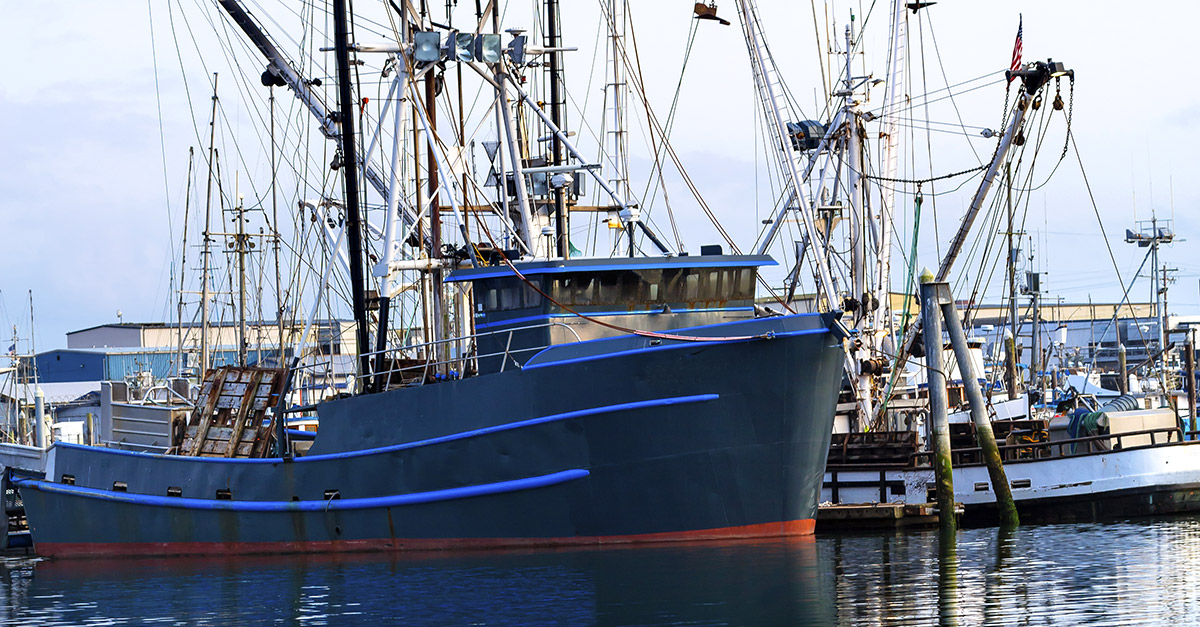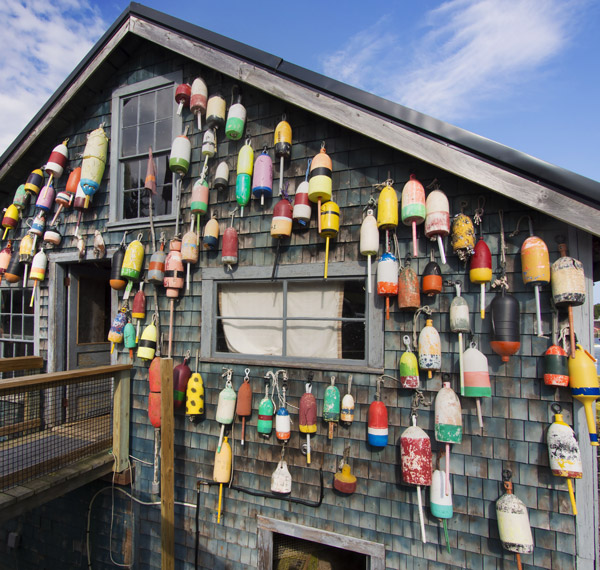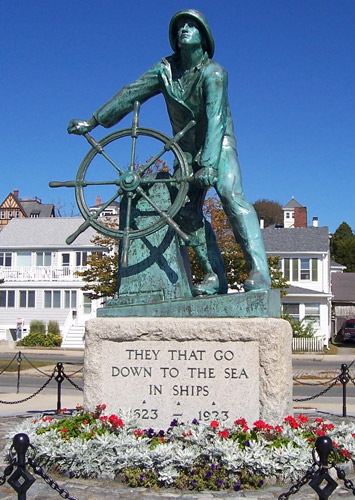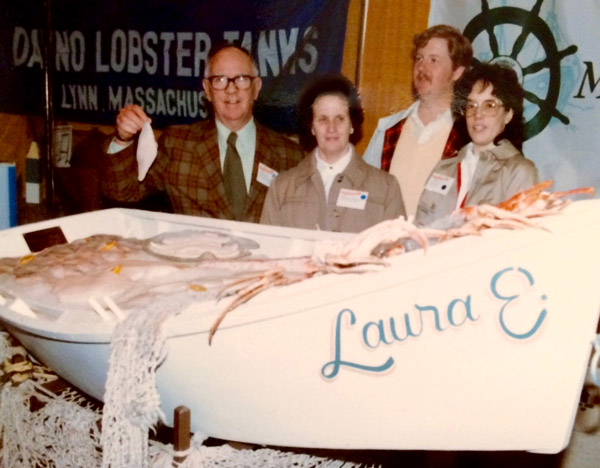
“Management’s job is to convey leadership’s message in a compelling and inspiring way. Not just in meetings, but also by example.” – Jeffrey Gitomer
“Let’s go for a ride,” Slugger would say. It was not a question – it meant we were going to have a meeting. Just the two of us riding around town in his 1969 green El Camino.
 The back of the small truck held an assortment of plastic fish tubs. As a proud Irishman, Slug Ryan’s tubs were green. The others were red, or blue, or black. The colors identified the owners, like the buoy floats marking lobster traps.
The back of the small truck held an assortment of plastic fish tubs. As a proud Irishman, Slug Ryan’s tubs were green. The others were red, or blue, or black. The colors identified the owners, like the buoy floats marking lobster traps.
He parked the El Camino on the Fish Pier in Gloucester’s Inner Harbor. The pier dated back to 1931 and by the early 80’s, when I started visiting, its years of processing seafood had given the wood structures a patina and fragrance some newcomers found objectionable – but to me, the smell was fine – like old money.
My food brokerage business was earning much of its income by selling seafood from Gloucester to our Carolina Customers, so I visited often. Each trip expanded my client line-up.
 Gloucester was a small, close knit, village of immigrant families from Portugal, Italy, Ireland, and England. Most were fishermen from humble origins who earned their living on and from the sea.
Gloucester was a small, close knit, village of immigrant families from Portugal, Italy, Ireland, and England. Most were fishermen from humble origins who earned their living on and from the sea.
Slugger and I would talk as we drove around Gloucester – me with my southern accent, fresh hair cut and blue blazer, and Slugger with his flattened nose and weathered skin, wearing his plant’s green uniform with “Slug” embodied on a patch above the left pocket.
The patch didn’t have boss, or owner as a title – it just said, “Slug”.
We would stop for coffee among seafood workers just getting off work or go in the local bank so he could sign papers as chairman of the bank’s board. Both places were the same to Slugger – all friends and all part of his community where he knew everyone and everyone knew Slug.
Sometimes we’d check in on the Boys Boxing Club. Slugger had been a boxer when he was young and wanted the boys of Gloucester to have those experiences. The club was in a walk-up room over a retail store. It was a simple gym, out of a Sylvester Stallion ‘Rocky’ movie, with a ring, punching bags, and some weights. He never talked about the finances of the club, but it was clear that the boys needed a safe place after school and that Slug was their hero.
On our drives we would stop to visit other seafood people, maybe have coffee and snack on smoked fish spread out on newspaper at a work table. While I was visiting with them, Slug would unload their tubs and load up the green tubs.
Slug’s company packed the flounder I sold so these exchanges could introduce me to someone who packed perch or cut cod blocks. This was Slug’s way of connecting me to the vast seafood industry centered around the pier. After introductions, I was on my own – Slug had done his part.
There was never an agenda I saw – he never told me what he wanted or what I should do next. He just shared stories in his friendly, unaffected style and over time the more Slug connected me with others, the more I wanted to do for him. Occasionally he would just say, “One hand washes the other,” and let it go at that.

Those were the most productive meetings I ever had. No polished table with countless people staring at an agenda, thinking only of the next meeting they needed to rush to attend.
Sometimes, if a meeting had a serious topic, he would drive to a spot where we could look out at the boats making their way home.
One afternoon, as the boats were unloading, I walked with Slug along the dock as he gathered fish into a tub. We took the tub into the plant and found an empty work table.
Slug unrolled a paper towel and spread the long strip out on the counter, asking me to arrange the flounder as he identified each fish – Fluke, Dab, Grey, Black-Back, Yellowtail, and finally an Arrowtooth.
As part of the lesson, and so I could always remember the differences, Slug asked me to draw the fish on the towel, including their markings. I kept that towel folded up in my wallet for years until it finally fell apart from its frequent use.
Slug helped me – not just with business contacts but in teaching me his model for leadership. I miss him.
Have you benefited from unique leaders like Slug? What were they like? How did they help you in ways you didn’t even realize at the time?
As always, the conversation starts here.
“In the ordinary choices of every day we begin to change the direction of our lives.” – Eknath Easwaran
Epilogue
This is Seattle, on the other side of the country. It tells the story of conversations and that was Slugger’s story – his message.
Pike’s Place Fish Market is unique, and nothing like the Gloucester Pier. It does look like fun.
My Seattle busker friend, Gretchen Yanover said:
“I was a busker as a teenager, playing with a string quartet at the Pike Place Market. It was a great summer job – it was fun getting to know the culture of the market life and making music with my friends…”
